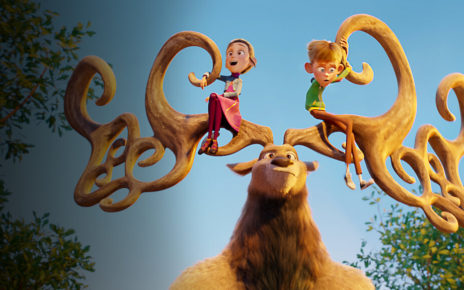Author’s note: I promise to review 1911 with the same level of objectivity with which it was made.
I never thought I’d miss kung fu as much as I do now. This is the third film I’ve seen this year which paraded China’s slanted take on early 20th Century history (1911, Empire of Silver, Beginning of the Great Revival); and this, in turn, marked the third time this year a Chinese film has bored me silly. This one even added the indignity of having battle and Jackie Chan and no kung fu. Jackie Chan for his acting. Excuse me for a moment; I have to go make a fortune selling non-alcoholic beer in Asia.
And why is Jackie Chan dubbed? Does he not speak the language?
1911 is the year of critical rebellion finally ridding China of the evil Qing dynasty. Get a load of the “let them eat cake” Empress Dowager (Joan Chen). The film suffers from many of the same problems as Beginning of the Great Revival, a barely disguised Chinese propaganda film about the Communist takeover. 1911 namedrops constantly and concludes most every scene with a written explanation of what happened to get you to the next event (pssst — you’re supposed to do this with images, not words). On the first point, 1911 named twenty or so characters in print on screen within the first five minutes. Then it killed them all off in a failed rebellion ten minutes in, so I think afterwards the film got frustrated of naming people after that and just went with monikers like “German diplomat” when it had to.
This is no way to make a movie.
Uglier still is the wooden and completely uncharismatic portrayal of Sun Yat-Sen (Winston Chao). BTW, is anybody at all embarrassed that the central figure to the rebellion ending the Qing Dynasty in China sat out most of the fighting while drumming up cash in the United States and Europe? No? Still revered in mythological terms? OK.
None of Dr. Sun’s speeches seem to have any cohesive message – it’s a little like watching SportsCenter: you got the basic highlights down, but no feel for the man. There’s a collection of useless aphorisms “when the rabbit dies, we eat the hunting dog.” Yeah, that’s terrific, fellas. How about the scene where Sun Yat-Sen crashes the outdoor European shindig? First off, it’s unclear what is being celebrated or who is invited. Are we led to believe that foreign bankers and dignitaries have garden parties in England on a regular basis? And why invite the Qing ambassador and Dr. Sun to the same party? That’s just stupid. The kicker on the “WTF?” nature of this scene is when Sun Yat-Sen starts playing caterer and serving up the roast beast to the Whos. Now I’m quite sure this is a historical recreation – it’s too far fetched for it not to be true.  The speechifying that follows here, however, is muddled and disjointed. Dr. Sun seems to be making a point of how the European countries are carving up China, but the metaphor is poor with the words he uses; it’s possible it just doesn’t translate well – but, given the audience, the original speech had to be made in English. This is the part that really bugged me – it’s not enough that you’re portraying Sun Yat-Sen in the broadest of bland noble virtues. Sure, China’s not going to allow anything less to leave the country these days, but I’m quite certain that Sun Yat-Sen was a gifted orator and convincing spokesman. Winston Chao is neither.
The speechifying that follows here, however, is muddled and disjointed. Dr. Sun seems to be making a point of how the European countries are carving up China, but the metaphor is poor with the words he uses; it’s possible it just doesn’t translate well – but, given the audience, the original speech had to be made in English. This is the part that really bugged me – it’s not enough that you’re portraying Sun Yat-Sen in the broadest of bland noble virtues. Sure, China’s not going to allow anything less to leave the country these days, but I’m quite certain that Sun Yat-Sen was a gifted orator and convincing spokesman. Winston Chao is neither.
Until the Chinese government has the guts to allow an honest attempt at modern art, it’s time to ignore whatever the censor reigns in. Lest ye think I’m picking on the Chinese, Detective Dee and the Mystery of the Phantom Flame is a much better film. I’d happily see that one again. And it had a lot of kung fu.
Rated R, 125 Minutes
D: Jackie Chan, Li Zhang
W: Wang Xingdong, Chen Baoguang
Genre: Propaganda disguised as biography
Type of person most likely to enjoy this film: Members of the Communist Party in China
Type of person least likely to enjoy this film: Fans of quirky film things, like “plot” and “character development”




Hold on, wasn’t Sun Yat-Sen the chairman of Kuomintang, the ‘capitalist’ counterpart (and thus exact opposite) of the Communist Party?
I thought this guy wasn´t exactly considered a saint in China.
All I can say is it’s clear from the film, the man is meant to be revered (especially in comparison to the existing dynastic figures).